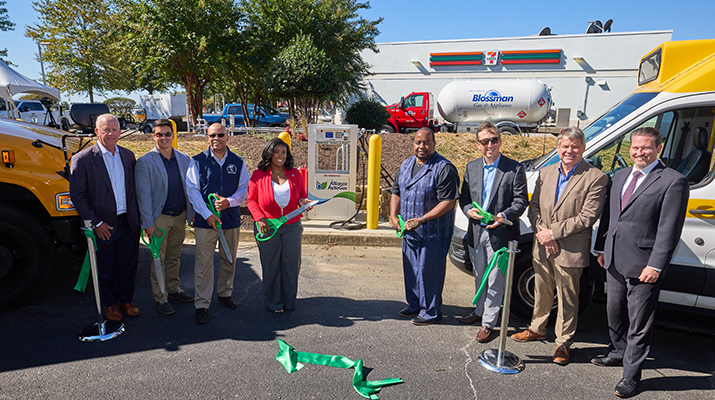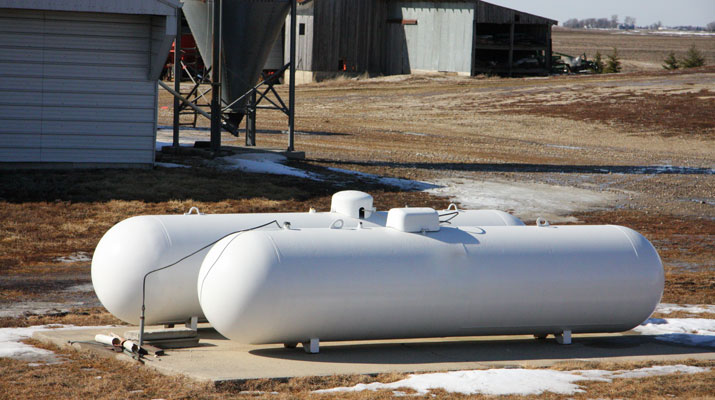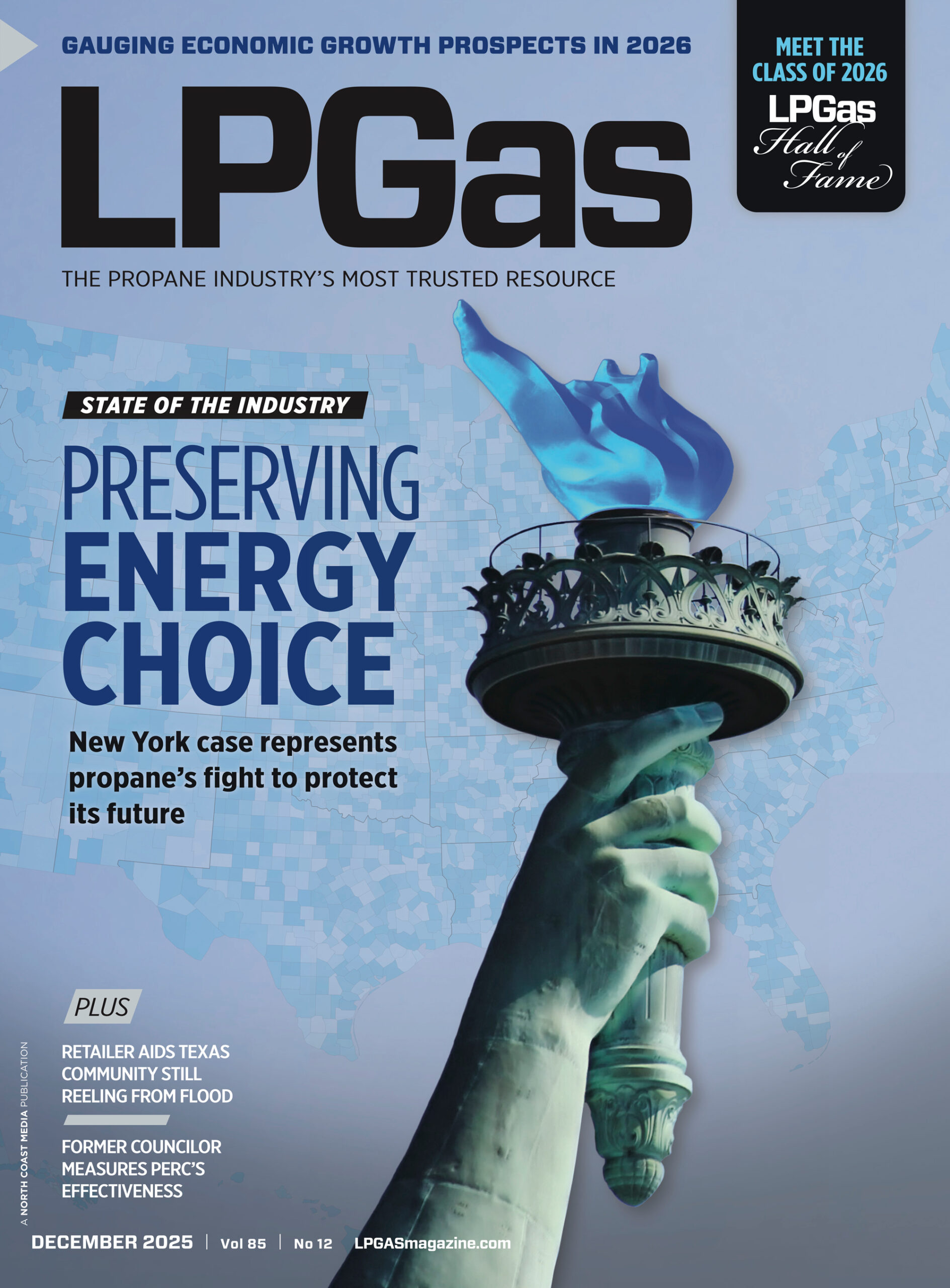New propane autogas station to service Virginia fleets

Leaders from across Virginia gathered to celebrate the opening of a new propane autogas refueling station near Richmond International Airport.
The station will serve local fleets, including Henrico County Schools’ propane-powered school buses and Park ’N Go’s airport shuttle vehicles. The 1,990-gallon tank and dispenser will deliver a reliable, cost-effective refueling option.
According to research from the Propane Education & Research Council (PERC), propane autogas vehicles reduce harmful emissions by up to 96 percent and cut operating costs by as much as 50 percent compared with diesel.
“When communities invest in clean transportation like propane autogas, everyone benefits. From the students riding on the buses, to the neighborhoods where these vehicles travel, to the business owners who save money,” says Tucker Perkins, president and CEO of PERC. “This is what the future of fleet transportation looks like, and as a Virginian, I am proud to see this investment in the Commonwealth.”
For Henrico County Schools, the station builds upon the district’s broader effort to modernize student transportation. In January, the district added 10 propane autogas buses to the fleet. The buses transport hundreds of students daily, offering a quieter, cleaner ride while reducing harmful emissions in the neighborhoods they serve, district leaders say.
“This new station gives us the tools to continue investing in our community’s air quality and our children’s health,” says Lenny Pritchard, chief of operations at Henrico County Public Schools. “By powering our school buses with propane instead of diesel, we’re reducing the emissions that students breathe every day. The addition of this refueling station makes it even easier to scale up our propane fleet and ensure clean transportation for our students for many years to come.”
Park ’N Go, which operates shuttle services for travelers at Richmond International Airport, has embraced propane autogas as part of its strategy to reduce emissions and fuel costs while maintaining reliable service for customers.
“We are happy to be able to use the new station near Richmond airport, as a common drawback for other alternative fuels was having to travel to out-of-the-way fueling terminals for our airport-centric fleet,” says Rick Fairchild II, technology manager at Park ’N Go.
The station’s opening reflects Virginia’s movement toward clean energy technologies. In 2024, the state awarded a contract to fuel its public fleets with propane and renewable propane, a low-carbon alternative made from sustainable sources. The new contract provides school districts, transit systems and government fleets access to favorable pricing and long-term stability, according to PERC.
“The opening of this public station marks another important milestone in providing cleaner, more cost-effective fuel options to all drivers in Virginia,” says Matthew Wade, deputy director of Virginia Clean Cities. “Investing in this fueling station opens the door for more drivers to take advantage of renewable propane and provides easier access to our fleet operators who often face challenges in working toward clean transportation transitions.”
The new station was made possible by local propane supplier Alliance AutoGas. As propane autogas becomes more widely adopted across the Commonwealth, refueling infrastructure will play a critical role in making the fuel accessible to local operators, according to the company.
“We’re proud to support Virginia’s growing commitment to clean transportation by delivering dependable, easy-to-use propane autogas refueling infrastructure,” says Steve McCoy, vice president of business development at Alliance AutoGas. “We want to make it simple for fleet owners to access clean energy when and where they need it. By building out convenient stations like this one, we’re helping local organizations and businesses take real steps toward cleaner transportation without adding cost or complexity to their operations.”
Vehicles and equipment displayed at the event demonstrated the wide range of applications for propane autogas. These included a Henrico County school bus, a Park ’N Go shuttle van, a transit van from James Madison University, a converted vehicle from Colony Construction, a service truck from Blossman Gas, a truck and trailer with propane-powered lawnmowers from A&S Lawn and Land Care, and a propane generator. Several of the vehicles on-site demonstrated the latest in bi-fuel technology, which allows fleet owners to operate vehicles on both propane autogas and gasoline. Bi-fuel systems offer flexibility and extended driving range while allowing operators to reduce emissions and fuel costs without altering routes or performance expectations.
The refueling site is expected to support future growth as more organizations in the region explore affordable and reliable alternative fuels.
















